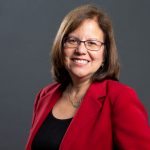Professor Jorge Delva, dean of the Boston University School of Social Work (BUSSW) since January 2018, and director and Paul Farmer Professor at the Center for Innovation in Social Work & Health (CISWH), announced he will step down from both his leadership roles at the conclusion of the 2022-2023 academic year and join the faculty at the School after a sabbatical.
Dr. Delva has been an effective and respected leader at BUSSW over the last four years, guiding the school’s continued ascent as a destination for social work scholarship and practice. He has overseen a range of significant advances during this time including developing a new strategic plan that strongly positions the school for the future; crafting important new policies and programs designed to enhance diversity, equity, inclusion, and social justice within the school and the field; expanding timely and relevant new lines of social work scholarship. He has also furthered the development of CISWH as one of the nation’s premier interdisciplinary centers expanding the impact of social work and social workers in healthcare delivery, public health, and global health. Dr. Delva has been recognized by faculty, staff, and students for an inclusive and collaborative approach that invites members of the community to contribute in meaningful ways, supports scholarly success, and elevates faculty accomplishments.
A prolific author, researcher, and nationally recognized expert on substance use disorders and ethnic health inequities, Professor Delva’s research is focused on improving the lives of low-income and racial and ethnic minority groups – to understand cultural variations in the causes of substance use and mental health disorders in the US and globally. In his work at CISWH, he is dedicated to expanding social work’s impact on healthcare and public health to improve the lives of vulnerable populations.
Among the nation’s leading social work scholars, he joined BUSSW from the University of Michigan’s number-one ranked social work program, where he was the Kristine A. Siefert Collegiate Professor of Social Work and director of the Communities Engagement Program of the Michigan Institute for Clinical & Health Research (MICHR), an NIH center for Clinical and Translational Science Awards. His scholarship has made substantial contributions to advancing our understanding of psychosocial-cultural mechanisms associated with substance-using behaviors among Hispanic/Latino, African American, and American Indian populations, as well as with populations in Latin America, and is supported by major grants from the NIH, the US Health Resources and Services Administration, and the Robert Wood Johnson Foundation. He is an elected Fellow of the Society for Social Work Research; a member of the American Academy of Social Work and Social Welfare; past editor-in-chief of the journal Social Work, the flagship publication of the National Association of Social Work; and this year was the keynote speaker at the annual meeting of the Society for Social Work & Research.
The University will launch a national search for a new dean early this fall, as well as a separate search for a new director for CISWH. The School and the University expressed their gratitude for Dr. Delva’s willingness to serve until these searches are complete and for his leadership over these last four years.


